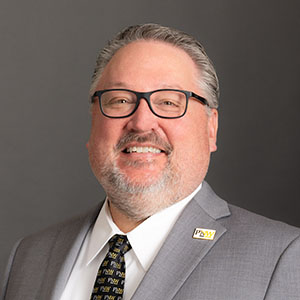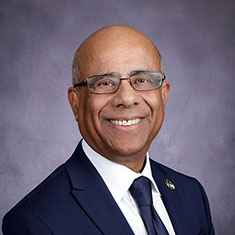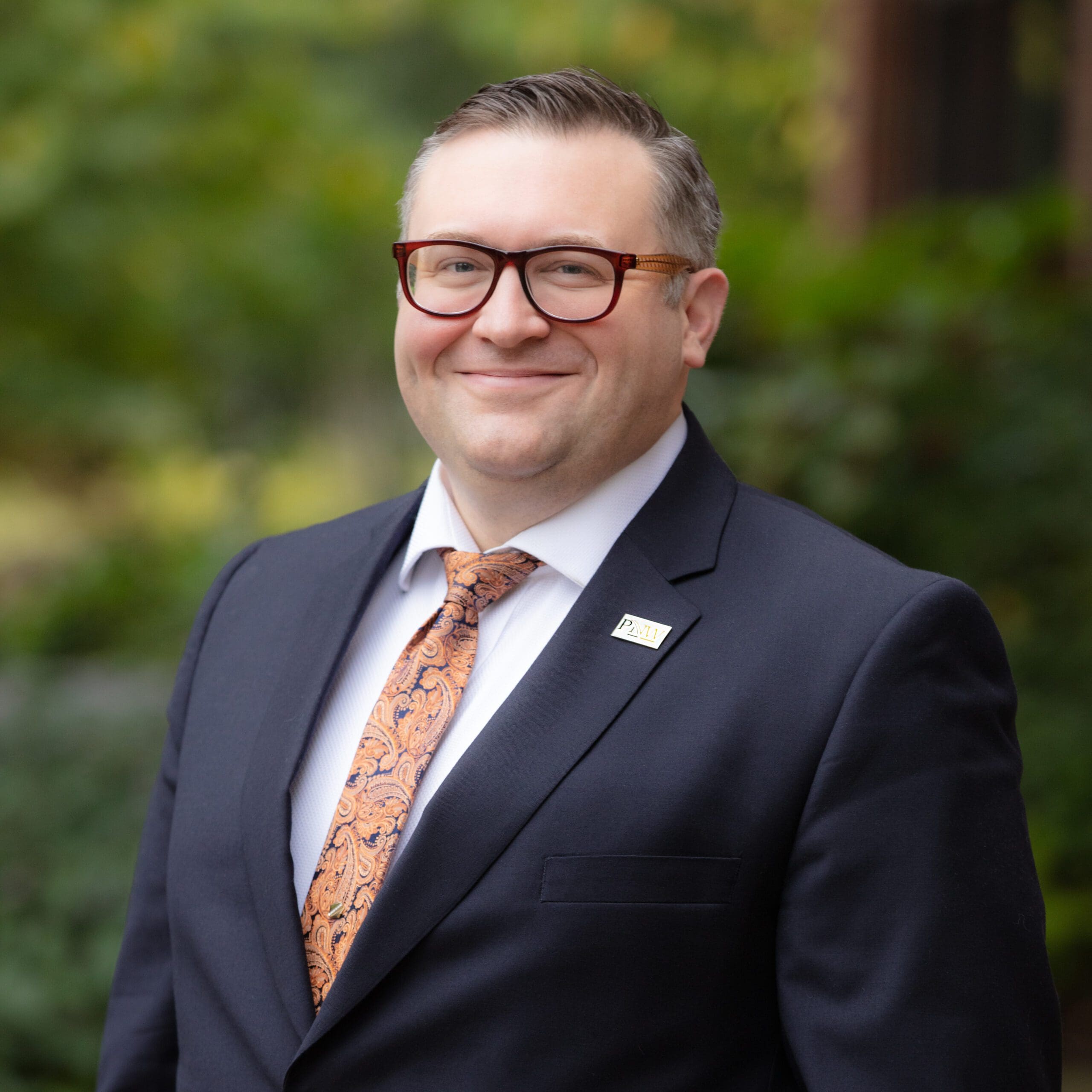Purdue Northwest Unveils Plan to Establish Major Quantum Commercialization Center as Part of Hammond’s Revitalization Effort
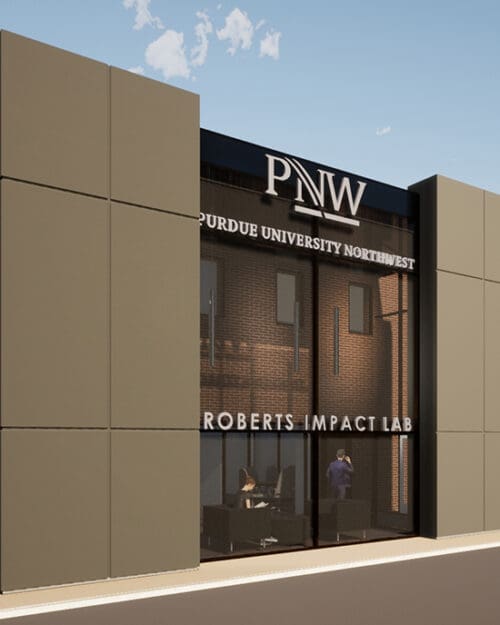
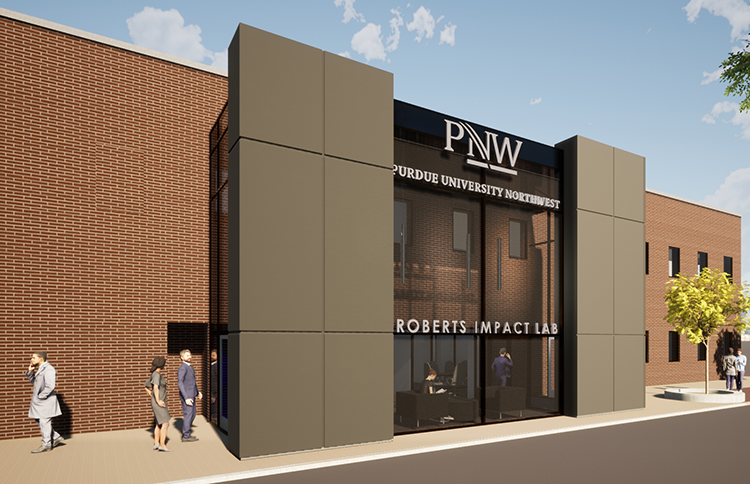
Purdue University Northwest (PNW) will join the Chicago region’s Bloch Tech Hub, a coalition of industry, academic, government and nonprofit stakeholders led by the Chicago Quantum Exchange and its focus on driving the nation’s quantum economy, university officials announced Thursday (July 18, 2024).
PNW Chancellor Kenneth C. Holford also revealed that the university is working with other members of the Bloch on a quantum commercialization center as part of the Roberts Impact Lab, a regional technology transfer and commercialization hub under development by PNW. The impact lab, which will be located at 5454 Hohman Ave. in Hammond, is the centerpiece of a new $40 million-plus downtown innovation district.
The impact lab has secured $7.7 million in committed funding through a $3 million philanthropic gift and another $4.7 million from Indiana’s Regional Economic Acceleration and Development Initiative (READI). The funding will be used to renovate an existing 44,000-square-foot medical office building, which is under contract by PNW. PNW, Quantum Corridor Inc. and the city of Hammond recently executed a memorandum of understanding that outlines the shared vision and goals for the Roberts Impact Lab, including a commitment to cultivating the lab as a potential hub for quantum information science and technology (QIST).
We are excited to expand on those goals to facilitate establishment of a hub for technology transfer and commercialization, including partnering with Quantum Corridor and other members of the Bloch toward the development of a quantum commercialization center.
“The Roberts Impact Lab at PNW has long been envisioned to spur economic development in northwest Indiana through an advanced manufacturing technology lab, makerspace, and scientific research and development space,” Holford said. “We are excited to expand on those goals to facilitate establishment of a hub for technology transfer and commercialization, including partnering with Quantum Corridor and other members of the Bloch toward the development of a quantum commercialization center. PNW is also proud to partner with the city of Hammond to locate the impact lab in the historic downtown corridor, which is undergoing momentous revitalization.”
Launched by Gov. Eric Holcomb and led by the Indiana Economic Development Corp. (IEDC), READI is moving communities forward by encouraging regional collaboration and data-driven long-term planning to transform Indiana communities, attract talent and improve quality of life for Hoosiers in the short and long term. With support from the Lilly Endowment Inc., READI is allocating $1.25 million to regions across the state. The northwest Indiana region, led by the Northwest Indiana Forum, was awarded $95 million in READI and READI 2.0 funds to advance its strategies, grow its population base, improve quality of place and quality of life, increase and diversify the region’s quality of opportunity, and spur innovation and entrepreneurship.
Additional Information
- Purdue University news release
- Chicago Quantum Exchange
- The Bloch Tech Hub
- Chicago region designated U.S. Tech Hub for quantum technologies
- Purdue Center for Quantum Technologies
- Quantum Corridor Inc.
- Purdue Quantum Science and Engineering Institute
“Through Governor Holcomb’s nationally recognized READI program, Indiana has an unprecedented opportunity to make once-in-a-generation investments to foster quality-of-place assets, talent development and industry innovation in our communities,” said Mark Wasky, senior vice president and special counsel to the secretary of commerce at the IEDC. “This investment in Hammond is the perfect example of how our public and private sectors are collaborating to advance high-tech, high-growth industries like quantum technologies and to build the economy and jobs of the future right here in Indiana.”
Last October the Chicago region was named an official U.S. Regional Innovation and Technology Hub for quantum technologies by the Biden-Harris administration, a designation that opens the door to new federal funding and recognizes its growing strength to be at the center of the nation’s quantum economy. The region’s Bloch Tech Hub was one of 31 designees from 400 applications nationwide.
Related, Purdue University’s West Lafayette campus, which is home to the Purdue Quantum Science and Engineering Institute (PQSEI), announced May 10 that it became a member of the Chicago Quantum Exchange. Purdue joined interdisciplinary and multi-institutional research activity anchored by the University of Chicago, Argonne National Laboratory, Fermi National Accelerator Laboratory, the University of Illinois Urbana-Champaign, the University of Wisconsin-Madison and Northwestern University, as well as partners across the globe. The PQSEI, which brings together leading quantum researchers and leverages collaborations with industry, government and academia to transform quantum technologies, is also a Quantum Corridor partner.
This investment in Hammond is the perfect example of how our public and private sectors are collaborating to advance high-tech, high-growth industries like quantum technologies and to build the economy and jobs of the future right here in Indiana.
For PNW, the Bloch Tech Hub partnership accelerates an aggressive emphasis on economic development and deep engagement with the region’s major industrial leaders, such as domestic steel manufacturers; BP’s Whiting Refinery; regional electric and gas utility NIPSCO; the city of Hammond; and community organizations such as One Region, the Society of Innovators at Purdue Northwest and the Northwest Indiana Forum.
Holford said the impact lab project on the Quantum Corridor network will have a transformative benefit on the region, building on PNW’s thriving and growing Commercialization and Manufacturing Excellence Center (CMEC) and the Center for Innovation through Visualization and Simulation (CIVS), a leading national hub for industrial simulation and digitalization. Both of these applied research and training hubs also can be leveraged at a greater scale through the Roberts Impact Lab to create a local nexus of collaboration between Purdue Northwest and other partners in the Bloch Tech consortium such as mHub, CQE, Ivy Tech, Harper College, City Colleges of Chicago and others, Holford said.
“Quantum Corridor will provide access for entrepreneurs and existing businesses to leading-edge quantum research and faculty and student expertise to develop and bring new ventures and jobs to the regional market,” said Niaz Latif, PNW’s associate vice chancellor for commercialization and research and executive director of the Roberts Impact Lab. “By aligning with Quantum Corridor and engaging other strategic partners, we aim to achieve a cutting-edge hub for quantum technology transfer and commercialization that will drive regional economic development.”
Quantum Corridor will provide access for entrepreneurs and existing businesses to leading-edge quantum research and faculty and student expertise to develop and bring new ventures and jobs to the regional market.
Quantum Corridor CEO Thomas P. Dakich added: “Mayor Tom McDermott’s vision for downtown Hammond is part of the renaissance of northwest Indiana. Purdue University is an international leader within the quantum research community, and we are thrilled to be part of this effort to bring the university, as well as its affiliates, and downtown Hammond together to drive quantum commercialization in the region.”
CIVS founding director Chenn Zhou, the NIPSCO Distinguished Professor of Engineering Simulation at PNW, has collaborated with over 180 organizations to develop and implement advanced computer simulation and visualization technologies for design, optimization, troubleshooting and workforce development. These collaborative projects address critical issues such as energy, decarbonization and digital transformation – highly valuable expertise and global partnerships that will further augment the impact lab’s capabilities and reach.
The integration of PNW’s Roberts Impact Lab into the Bloch Tech consortium is led by Matt Wells, PNW’s chief engagement officer. A major thrust of that effort: Ensure the impact lab serves as a catalyst for innovation and economic growth throughout northwest Indiana.
The Bloch represents a major opportunity for northwest Indiana to be positioned at the leading edge of one of the most critical technological advances in our lifetimes.
“This commitment to advancing emerging industries such as QIST and accelerating the growth of existing industries is central to the mission of the impact lab, as it aims to transform the regional innovation ecosystem,” Wells said. “The Bloch represents a major opportunity for northwest Indiana to be positioned at the leading edge of one of the most critical technological advances in our lifetimes.”
Mayor McDermott also expressed his enthusiasm for the project: “Downtown Hammond is in the middle of a massive transformation, with the expansion of the South Shore Line offering easy access to Chicago, and multiple active projects that are positioning the city as a magnet for new investment. The impact lab will be a powerful draw for additional new development and talent attraction.”
The mission of the Chicago Quantum Exchange is to bring together member institutions’ intellectual talents, research capabilities and engineering capacities in a powerful collaborative effort to advance quantum science. Together, the universities and national laboratories currently have more than 130 researchers in various areas of quantum information technology — a setup that makes Chicago a unique destination for researchers and engineers to explore quantum information science in numerous ways. The Chicago Quantum Exchange is based at the University of Chicago’s Pritzker School of Molecular Engineering.
